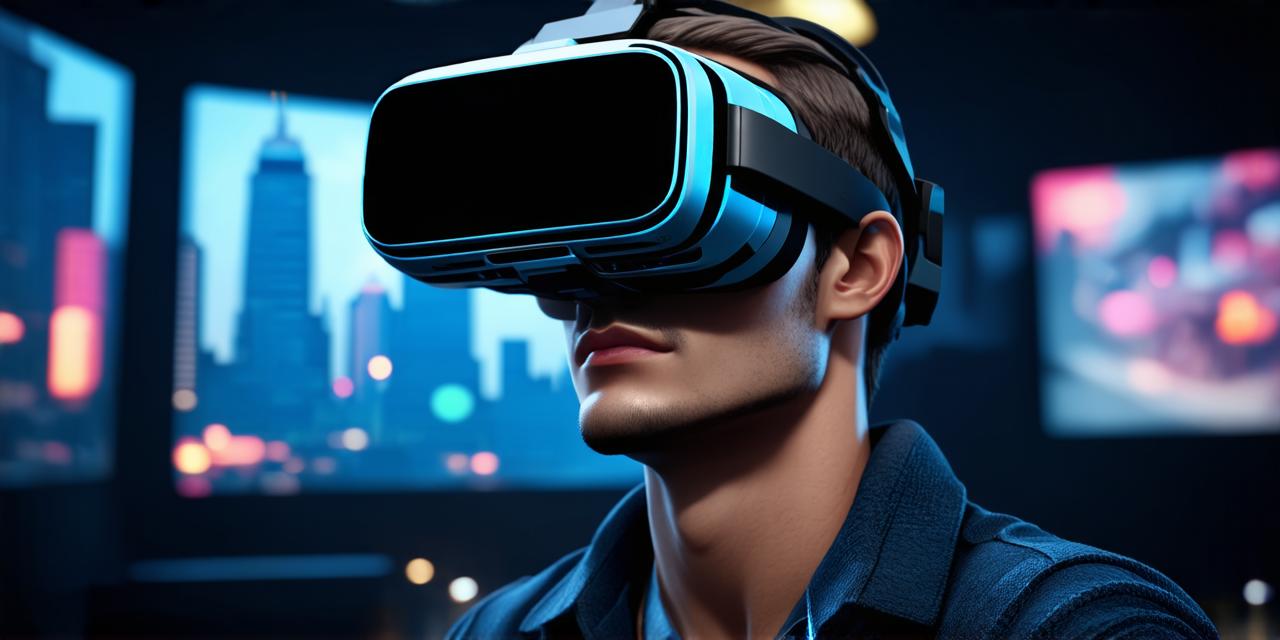Introduction:
Virtual reality (VR) is an immersive technology that simulates a 3D environment and allows users to interact with it. With the development of VR headsets, it has become easier for individuals to experience virtual worlds without leaving their homes. In this article, we will explore the endless possibilities of virtual reality with a headset, and how it can transform various industries.
Headset Compatibility:
The first step towards using a virtual reality headset is ensuring that it is compatible with your computer or gaming console. Most VR headsets require a powerful graphics card and sufficient RAM to run smoothly. It’s also important to note that not all games and applications are designed for VR, so it’s crucial to check the system requirements before purchasing a headset.
Education and Training:
Virtual reality technology has revolutionized the way we learn and train. With VR, students can virtually attend classes from anywhere in the world, allowing them to learn from experts in their field. For example, medical students can practice surgeries on virtual patients without risking harm to real ones. Similarly, pilots can practice flying in a simulated environment before taking to the skies in a real plane.
Entertainment and Gaming:
Virtual reality headsets have also revolutionized the entertainment industry, providing gamers with an immersive gaming experience like no other. VR games allow players to fully immerse themselves in a virtual world, creating a more realistic and engaging experience. For example, players can explore fantasy worlds or fight off zombies in a virtual reality environment.
Virtual Meetings:
The COVID-19 pandemic has forced many businesses to adopt remote work policies, and virtual reality technology has made it easier for individuals to connect with their colleagues virtually. With VR headsets, users can participate in virtual meetings and conferences as if they were physically present in the room. This technology can also be used for job interviews, allowing candidates to interact with recruiters in a more realistic setting.
Tourism and Hospitality:
Virtual reality technology has also transformed the tourism and hospitality industry. With VR headsets, users can explore famous landmarks and tourist attractions from the comfort of their own homes. For example, users can virtually walk through the streets of Paris or explore the Great Barrier Reef without leaving their homes. This technology can also be used to create virtual experiences for hotels, allowing guests to experience the property before deciding to book a stay.
Virtual Events:
Virtual reality technology has also made it possible to host events in a virtual environment. For example, concerts and festivals can be live-streamed in virtual reality, allowing users to experience the event as if they were physically present. This technology can also be used for weddings and other special events, allowing guests to participate in the event virtually.
Real Estate and Architecture:
Virtual reality technology has transformed the real estate and architecture industry, allowing users to explore properties and designs in a more immersive way. With VR headsets, users can virtually walk through a property or view a building design as if they were physically present. This technology can also be used to create virtual showrooms for products, allowing customers to experience the product before making a purchase decision.
Fitness and Sports:
Virtual reality technology has also transformed the fitness and sports industry, providing users with an immersive workout experience like no other. With VR headsets, users can participate in virtual workouts and sports competitions from the comfort of their own homes. For example, users can virtually run a marathon or compete in a virtual tennis match. This technology can also be used for physical therapy, allowing patients to perform exercises in a more controlled environment.
Conclusion:
Virtual reality technology with a headset has endless possibilities and can transform various industries. Whether it’s education, entertainment, or tourism, VR headsets have revolutionized the way we interact with technology and each other. As this technology continues to evolve, we can expect to see even more innovative uses of virtual reality in the future.
